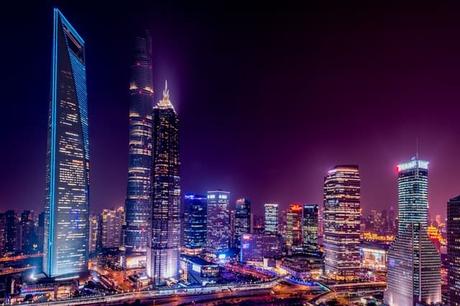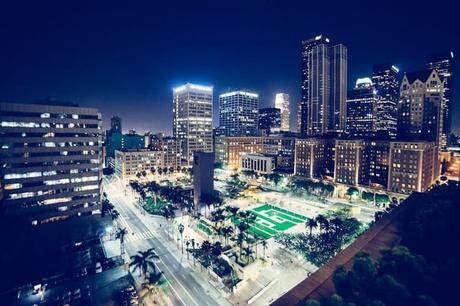Since the invention of the light bulb and advancements in the technology, streets, highways and major urban centers are lit and brightened by very powerful light sources. Artificial lighting causes problems in the name of light pollution mainly with regards to the alteration of natural lighting in the outdoor environment during the night. Light pollution is thus linked to the disruption of the natural habitat and negative impacts on human health. It also interferes with the aesthetic beauty of the environment.
Fireflies, for instance, have gradually reduced in number and in some places they have completely disappeared because of bright artificial lighting at night. Birds migrating at night among other nocturnal animals have also lost their course after being misdirected by bright skies or light towers. The consequences are turning out to be bad and predictions are that it can be even worse in the future. Hence, initiatives have to be taken to address these concerns and the following can qualify as 15 impressive ways to reduce light pollution.

1. Reduce the use decorative lighting. Festivities and celebration periods often leads to the excessive use of decorative lighting kept on all day and night. The use of decorative lighting during festive seasons should thus be lessened to reduce the brightening of the skies. As an alternative, environmentally friendly candles should be used for the celebration periods. Furthermore, it will also help in conserving energy.
2. Use of covered bulbs that light facing downwards. For street lights – streets and highways lighting must be properly designed such that too much light is not reflected into the sky. The solution for this is designing covered bulbs that light facing downwards and for this reason, it would help reduce the brightening of the skies as it eliminates the light that reflects into the sky.
3. Minimizing the use of lights. Switching off unnecessary lights can hugely help in reducing light pollution. This is the cheapest, easiest and most effective method of dealing with the problem. It can be achieved by turning off lights when about to sleep or whenever there is no activity going on outside is the house. If the concern is security, then lights should only be put on if there is a security alarm.
4. The use of automatic systems to turn off street light at certain times. In the daytime, there is no need for street lighting. Also, when the moon shines bright, there is no need for street lighting. Automated timers and systems can be used to turn off street and highway lights when they are not needed to encourage natural lighting. They can be pre-set to turn off automatically whenever the environment is naturally bright.
5. Have all information and facts about light pollution. Having the knowledge about the sources and effects of light pollution can significantly aid in dealing with the problem. The overriding recommendation is extensive awareness creation as most people don’t even know about light pollution. It is therefore the moral duty of those aware of the situation to spread the word about light pollution and its remedies just as this article does. If you happen to read this, you can share with as many people as possible in order for more people to be aware of light pollution.
6. The development and advancement of better alternative to cruises, light houses and ships. In the marine world, light houses are used for navigation purposes for boats, cruises and ships. The drawback is that the light houses emit very powerful lights that cause light pollution in the marine world, directly affecting the habitats of aquatic species. Accordingly, scientists are urged to research on the issue and develop better and environmentally friendly alternatives that can be used for navigation purposes.
7. Refrain from light trespassing. The use of bright outdoor lights directed towards neighboring houses is completely unethical because it creates discomfort. Therefore, it must be ensured that outdoor lights do not trespass into residential houses. It is as simple as ensuring the lighting in your house or street lighting projects do not allow light to enter the neighboring houses. It is annoying and is even associated with creating sleep disorders. In short, refrain from using outdoor lights that glare at neighbor’s window.
8. Preventive measures are always important. Preventive measures are essential and have to be taken whenever possible to reduce light pollution. Examples include the use of glare-free bulbs, installing low hanging bulbs, having the lights facing downwards, and covering the bulbs to reduce bright skies at night.

9. Glare-free lighting for vehicles driven at night. Dim lighting while driving at night is just enough for streets and highways already lit with artificial lighting. In areas without artificial lighting, medium lighting is more than enough because it lights up the path or roadway very well.
Bright light, on the other hand, causes glare which may blind oncoming drivers and even interfere with wildlife habitats by altering their natural cycles and operations. Hundreds of wildlife such as deer and zebras are, for instance, killed on the roads in the evenings since the glares blind and distort their night locomotive aspects.
10. Check and put to a stop the use of needless lighting during the day. The use of lighting during the day is needless and should be completely avoided. It is simply a waste of energy. Natural light sources should mostly be used to cater for all lighting needs be it on the streets, in showrooms, in the house, or in offices.
11. All outdoor lights with glare should be replaced with low-glare alternatives. There are many alternatives in the market offering sky-friendly outdoor lighting. It’s important for municipalities, real estate contractors, and individual home owners to opt for certified low-glare fixtures, which guarantees low-pollution lighting.
12. Use of motion sensors on important outdoor lights. Instead of keeping lights on during the night for security reasons, the installation of motion sensors on the lights can prove helpful. Motion sensors will only have the lights on when motion is detected thus reducing the overall costs on electricity while at the same time cutting back on light pollution at night.
13. Colored lights can be used as an option. Colored lights are anti-glare and still serve the purpose of night lighting very well. Yellow, red and amber lights can reduce the negative effects of lighting during the night because they don’t affect night time vision.
14. Get involved. Your contribution as an individual is to get involved in the fight against night pollution. You must be curious to know what your local government or community is doing to reduce light pollution. The simplest way is joining community programs and important political debates about pollution then educate people on the sources, effects and solutions of light pollution.
15. Share with family and friends. (take beautiful pictures and share with them) If you love the beautiful appearance of the sky at night, the bright starts and the occasional brightly shining moon, its time you share with family and friends through social media and normal meet ups. Through sharing with family and friends, they can start appreciating the stars in the world’s Milky Way Galaxy thereby inspiring new directions towards reducing artificial lighting and even spreading the news further.

